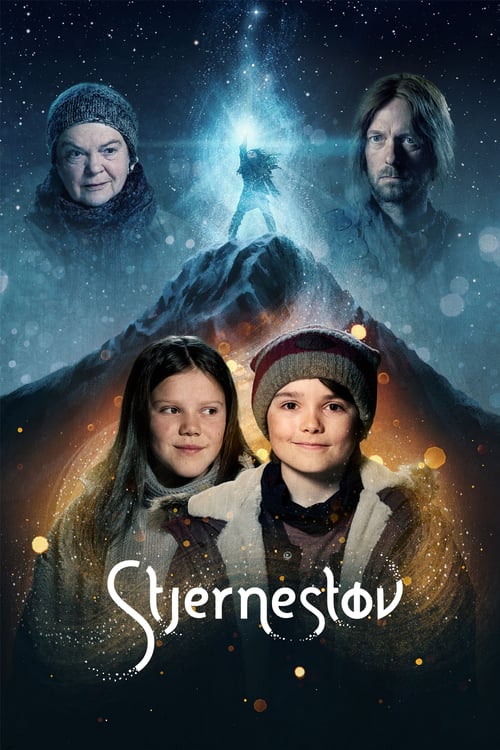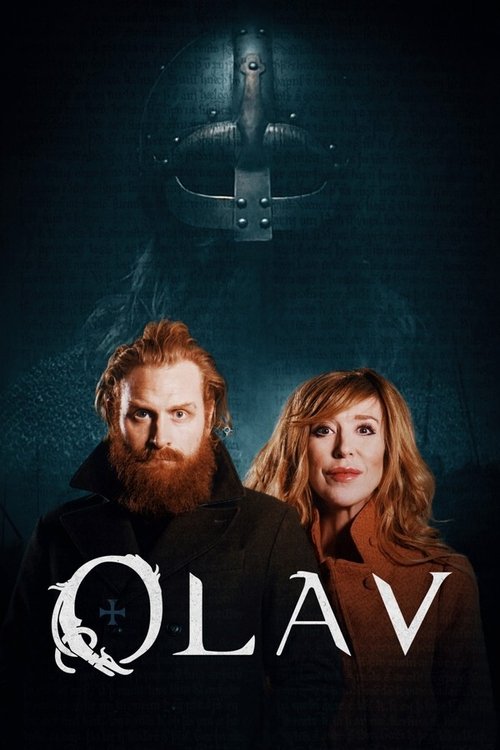
Ask Your Own Question
What is the plot?
Magne wakes up in bed with Saxa, Fjor, and Ran at the Jutul family's house after a night of heavy drinking following the wedding. He is disoriented and confused about how he ended up there, and Saxa watches him closely as he regains consciousness. Fjor and Ran are present, observing Magne's state and discussing the situation quietly.
Saxa reveals to Fjor and Ran that she intends to side with the most powerful god, which she believes is Magne, and plans to use him as a pawn to turn against her own family. Fjor reacts with clear discomfort and disapproval, expressing his distrust of Saxa's motives and warning her that her actions could have dangerous consequences.
Downstairs, tension rises as the Jutul family deals with the aftermath of the wedding and the shifting alliances among the gods. Magne's sister, Signy, struggles with his decision to align himself with the Jutuls, feeling conflicted about his choices and the implications for their family. Their mother, Turid, attempts to intervene, but Magne demonstrates his power in front of her, leaving her both amazed and unsettled.
Magne confronts Saxa about her intentions, demanding to know what she truly wants. Saxa insists she is not lying and that she genuinely believes Magne is the strongest god, but Magne remains suspicious of her motives. Fjor continues to watch the situation closely, wary of Saxa's influence over Magne.
Ran and Fjor have a private conversation about Saxa's plan, with Ran expressing her own doubts and concerns. Fjor warns Ran that Saxa cannot be trusted and that her actions could put everyone at risk. Ran acknowledges the danger but remains conflicted about how to proceed.
Magne's relationship with the Jutul family becomes increasingly strained as he tries to navigate the complex web of alliances and betrayals. He begins to question his own identity and the role he is meant to play in the coming conflict, feeling the weight of his responsibilities as the reincarnation of Thor.
Saxa continues to manipulate the situation, using her charm and influence to keep Magne close while secretly plotting her next move. Fjor remains vigilant, determined to protect Magne from Saxa's schemes and prevent her from turning him against his own family.
The episode ends with Magne caught between loyalty to his family and the growing influence of Saxa, unsure of who he can trust as the battle for power among the gods intensifies.
What is the ending?
At the end of Ragnarok Season 3, Episode 3, "Losing My Religion," the story reveals a major twist: the supernatural battles and events involving Magne and the gods are all taking place inside Magne's mind. The episode closes with Magne at his graduation, witnessing surreal scenes of conflict that no one else reacts to, confirming that the entire mythological conflict is a mental construct rather than reality.
The episode begins with Magne waking up in bed alongside Saxa, Fjor, and Ran after a night of drinking at the Jutul family's place following a wedding. This intimate and tense setting introduces new dynamics and alliances, as Saxa reveals her intention to side with the most powerful god, using Magne as a pawn against her own family. Fjor reacts negatively to this revelation, highlighting the internal family conflicts.
Meanwhile, Magne's sister Signy struggles with Magne's decision to align with the Jutul family, and when their mother Turid intervenes, Magne demonstrates his godly power, leaving her astonished.
As the episode progresses, the narrative shifts to Magne's graduation ceremony. Here, the surreal nature of the story becomes apparent: Hod, who was previously injured by an arrow, is seen playing with a bow and arrow and then shooting Jens. However, no one around reacts to this violent act, and Magne envisions a massive battle between gods and giants unfolding in front of the indifferent crowd.
This scene is the key turning point, revealing that all the supernatural events, battles, and mythological elements that have driven the series are figments of Magne's imagination. The entire Ragnarok conflict is a mental construct, a fantasy world Magne has created in his head.
Regarding the fates of the main characters involved at the end:
- Magne is shown transitioning from his fantasy world to reality, symbolized by him discarding the comics that influenced his imagined world and stepping into adulthood without relying on his constructed reality.
- Saxa, Fjor, and Ran are present in the earlier scenes, with Saxa choosing to side with the powerful god and Fjor opposing her. Their exact fates are not detailed beyond their roles in Magne's mental narrative.
- Signy and Turid are involved in family tensions but remain grounded in reality, with Turid witnessing Magne's powers and Signy struggling emotionally.
- Jens and Hod appear in the graduation scene, with Hod shooting Jens in Magne's vision, but since this is all in Magne's head, their actual fates are ambiguous.
The episode closes with Magne meeting his friends in reality, enjoying a drink together, signaling a return to normalcy without the supernatural overlay, though Isolde, who had died earlier in the series, is absent.
This ending reframes the entire series as a psychological and emotional journey within Magne's mind rather than a literal mythological battle, leaving many questions about what was real and what was imagined.
Is there a post-credit scene?
There is no post-credit scene in Ragnarok Season 3, Episode 3 titled "Losing My Religion." The episode ends with the main narrative concluding as Magne wakes up in bed with Saxa, Fjor, and Ran after a night of drinking and tension at the Jutul family home. The story focuses on the immediate aftermath of their wild night, the shifting alliances among the characters, and the emotional fallout from Magne's choices, but the credits roll without any additional scene or teaser following them.
What happens to Magne under Saxa's spell in 'Losing My Religion'?
In 'Losing My Religion', Magne continues to fall further from himself under Saxa's spell, becoming increasingly detached from his own identity and reality. This mental and emotional deterioration serves as a distraction, allowing Fjor to advance his own dangerous plans without interference from Magne.
How does Fjor's plan unfold in this episode?
Fjor uses Magne's weakened state as a distraction to enact his vicious plan. He sets a dangerous trap, manipulating events and people around him while maintaining his calm and collected facade as CEO, even as the police begin to question him about Marianne's death.
What role does Saxa play in Magne's downfall in this episode?
Saxa's spell directly causes Magne's mental and emotional decline, making him lose touch with himself and his surroundings. This manipulation is crucial to Fjor's ability to carry out his plan without resistance from Magne.
How does Magne's behavior change in 'Losing My Religion'?
Magne's behavior becomes increasingly erratic and unstable due to Saxa's spell. He struggles to distinguish between friend and foe, and his actions are influenced by the supernatural forces affecting him, making him vulnerable and less able to protect those around him.
What is the significance of Fjor's interactions with the police in this episode?
Fjor's interactions with the police are significant because he maintains a calm and collected demeanor despite being questioned about Marianne's death. His ability to manipulate the situation and avoid suspicion allows him to continue his plans without immediate consequences.
Is this family friendly?
The episode "Losing My Religion" from Ragnarok Season 3 is rated TV-MA, indicating it is intended for mature audiences and is not family-friendly for children or sensitive viewers.
Potentially objectionable or upsetting content includes:
- Scenes involving alcohol consumption and intoxication, including a night of heavy drinking that leads to complex interpersonal dynamics.
- Sexual situations or implications, as the main character wakes up in bed with others after a night of drinking, suggesting mature themes.
- Emotional tension and psychological manipulation, with characters involved in betrayal, dangerous plans, and power struggles that may be intense or distressing.
- Violence or threats, as the episode involves dangerous traps and conflict, though specific graphic details are not highlighted in summaries.
- The overall tone is dramatic, mysterious, and thriller-like, with complex and dark themes unsuitable for younger audiences.
Given these elements, the episode is not suitable for children or viewers sensitive to mature themes such as substance use, sexual content, emotional distress, and violence.






















